It might be a little late to say this, since the relevant storyline is over, but the thing that bugs me about Dumbing of Age is that Becky doesn’t act like somebody who’s been through half the shit she’s seen. This girl had a messed-up, abusive family, there is no way she’s more “well-adjusted” than Joyce. There’s a difference between writing a character who copes by pretending everything’s okay and a character whose backstory really only exists to make them sympathetic.
One of the most important rules in….life, really, is the concept of diminishing marginal utility. The more times you do something, the less it works, even if it was a brilliant idea originally. A common habit in writers, especially younger writers, is taking a thing they like and just doing that thing really hard.
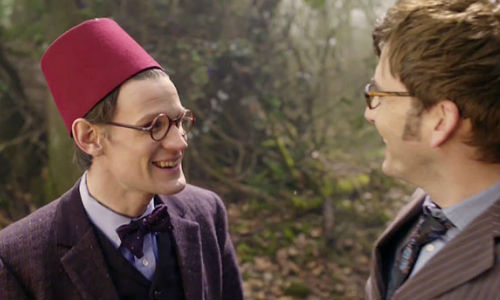
The Steven Moffat-era Doctor Who might be the most famous offender here (At least the Matt Smith years; maybe Capaldi is better?). Moffat loved “clever” plots, and he loved to bring up the (logical!) idea that the guy who’s been saving the universe one a week for decades of TV might be well-known, and he loves symbolism in his female characters.
And as a writer of occasional episodes of Doctor Who, he was widely praised for doing these things. So he was put in charge of the show, and he did those things some more.
And, suddenly, his popularity tanked. All his strengths became weaknesses, because when you do the same kind of thing repeatedly, people stop seeing it.

“Blink” was a smash hit Doctor Who episode. It was so clever and different that everyone loved it. And because everyone loved it, no one cared that the premise was a character interfering with their own timeline, which is literally the only time-travel rule Doctor Who (normally) cares about consistently.
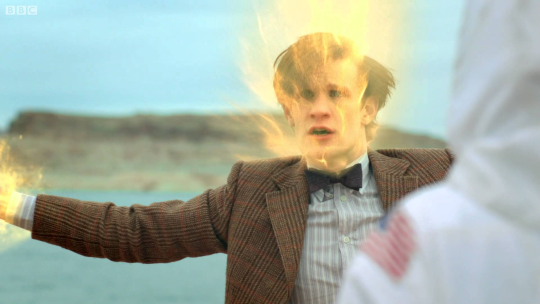
So the entire sixth season is based around a stable time loop where the Doctor fakes his own murder. But then there’s less novelty, and also it’s longer, so people start thinking about the logic more. You use the clever idea as a crutch too long, people start asking why there’s an astronaut or why an evil cult needed to steal a half Time Lord baby to kill the Doctor when the only thing River did was just shoot him, and the Doctor’s already died ten times and all you need to do is kill him twice rapidly.
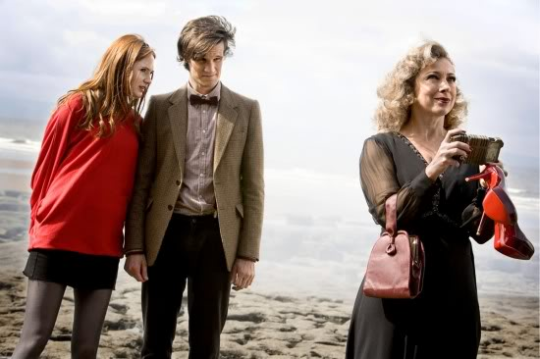
Perhaps more relevantly to my point: Having a female character exist solely as a magical plot device is a reasonable idea (Well, an acceptable one). Having all of them be magic plot devices makes people think you have issues.
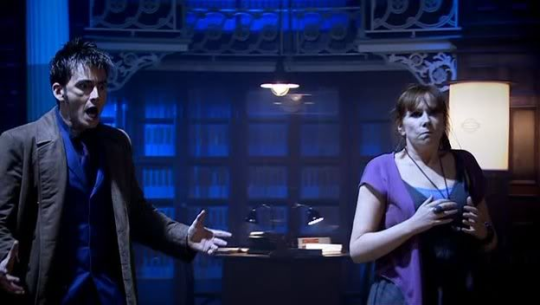
When David Tennant went “Hey, fuckers, I’ve killed literally dozens of evil civilizations maybe don’t piss me off” and the Vashta Nerada were all “That’s actually a pretty good point bye”, it was awesome. When every other episode had people gush over the Doctor, it rapidly got trite, annoying, and bullshit cop-out-y (poor River got progressively less interesting with every appearance, as her character devolved into Mysterious Yandere in wuv)
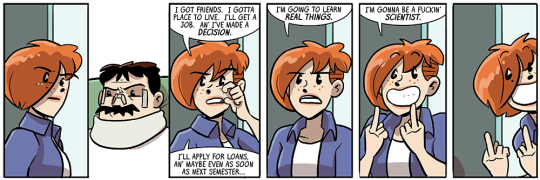
Willis really likes “I’m here, I’m queer, go fuck yourself” as a dramatic “win” moment for his characters, with the hero flipping off the bad guys with a big grin.
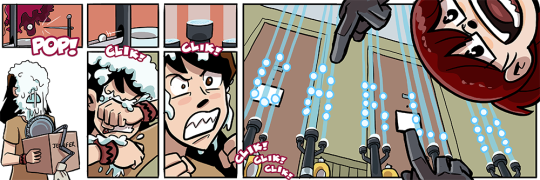
Like, a lot.
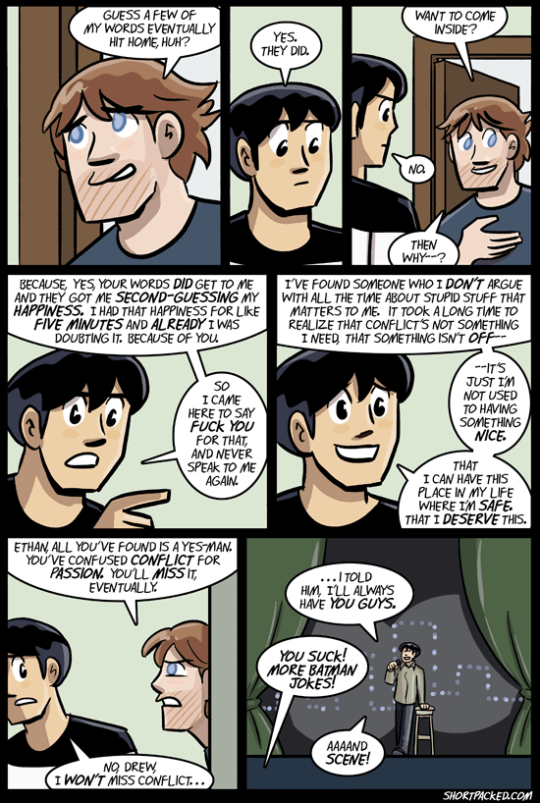
Willis characters don’t “win” in the sense that they get one over on the antagonist (Even Carla pie-ing Mary wasn’t “Mary was embarrassed/humiliated/hurt/changed” so much as ‘Carla told her off in a big way”). They just go “You’re awful, I’m happier without you, and I wanted you to know that :D” while the bad guy stands in slack-jawed silence.
And, well, there’s only so many times you can spend a nickel. Don’t be surprised if Joyce does something similar to her parents soon. And even though the comic’s been building to it for a long time, it’ll be a lot less effective because it’s been done twice already in fairly recent storylines. Just like Becky’s storyline is a bit weaker because her character is supposed to be putting up a front for her inner sadness except she acts just like Carla, who’s fine.
